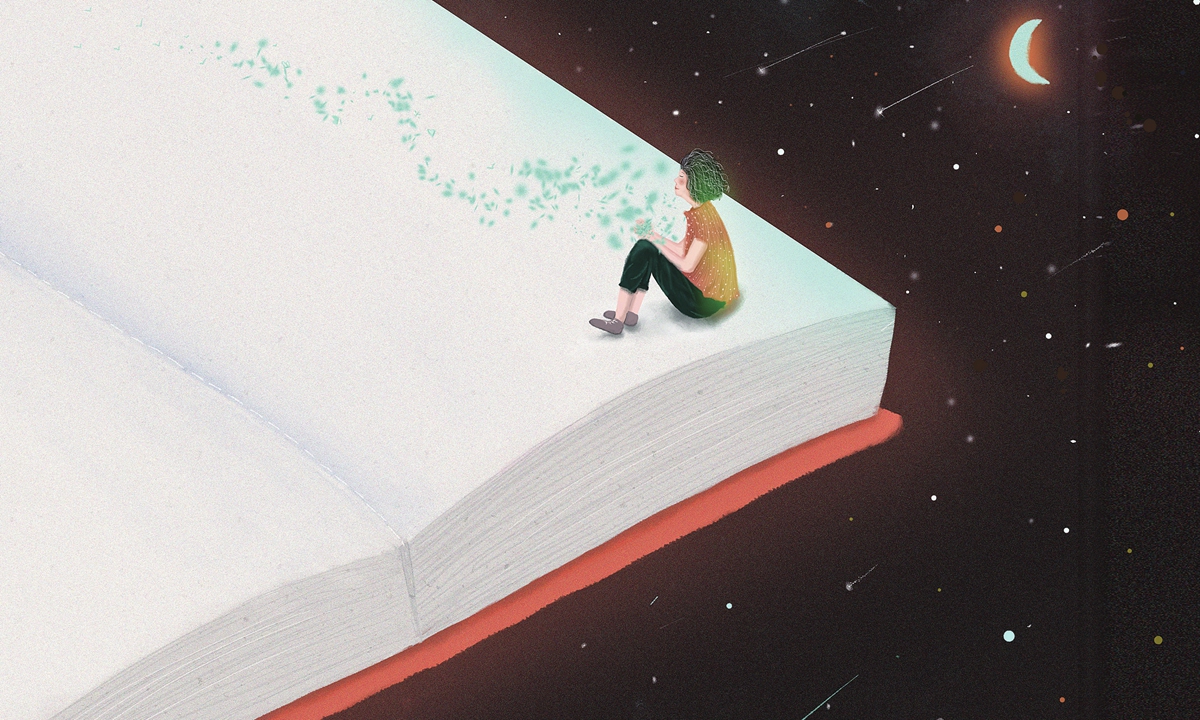Editor's Note:"Read ten thousand books, and your pen will be guided as if by the gods" is an ancient Chinese idiom that can be seen in students' textbooks. China's Ministry of Education has published an action plan to further promote reading among students across the nation. With new and diverse book recommendations, the reading scene is expected to see a revival not only at schools, but also across society. To contribute to this endeavor, the Global Times launched "My Reading Life" essay contest for school students.
On April 23, World Reading Day, we began publishing the excellent essays contributed to us by our student readers across and beyond China. The essay contest continues.
Please pick up a pen and share your stories with us at
reading@globaltimes.com.cn

Photo:VCG
The novel
The Catcher in the Rye possesses a kind of magic: You may have a hard time getting through the first reading, but you will be deeply touched by the second.
The book is narrated from the first-person perspective of a young man named Holden. The beginning of the book finds Holden expelled from school and embarking on a three-day journey of wandering in New York, the US.
Wandering around New York sound romantic and full of teenage angst, but Holden's experience is far from enjoyable.
Holden's life is full of "strangeness." He ends up in odd situations like sneaking his way through conversations and meeting his brother's ex-girlfriend, who peppers him with questions.
Dichotomy of a characterHolden possesses the apparent arrogance and pretense of a teenager. He is a wanderer without security, always trying to appear mature and sophisticated, yet every word and action reveals he is controlled by his teenage hormones.
His reaction to the world is also genuine.
He hates almost everything fake and pretentious, yet he also pretends to be an adult. Deep down, he is still a child - rebellious and full of ideals. He prefers to use arrogance to cover his kindness and naivete, masking his ignorance and fear of the world. Yet the world will not accept a teenager's indignant shout.
The world continues to revolve, with or without Holden. Gradually, Holden realizes this and falls into confusion.
The more confused Holden becomes the more negative and nihilistic he gets.
If he viewed the world with disdain, he is now puzzled by it. Why don't others realize how terrible the world is? Holden falls into a self-crisis, wandering and trying to blind himself with vice. Without a doubt, he fails.
Escaping the real world can only be temporary.
Holden tries to make himself happy with alcohol, without considering the consequences of being discovered by his parents.
As the saying goes: "The flower that blooms in adversity is the rarest and most beautiful of all."
Throughout history, many young people have gone through such a phase. When they see the world and its different scenery and people, their awe of the world turns into disdain, because they are blinded by darkness.
Yet when they gradually grow up, they see that things are not so simple, and no one is purely "good" or "bad."
Perhaps there is no need to figure out such profound questions during adolescence, and perhaps no one can ever fully understand them.
However, such puzzled questions make the world interesting - you never know how it works. This cosmic mystery has attracted generations of explorers, giving rise to various hypotheses and theories.
At the end, everyone will define their world and make their own rules, but the uniqueness and universality of these rules exist simultaneously.
There is no universal path and no shortcut to success. Our whole life and our generation are all in the process of seeking. Holden is just a drop in the ocean.
Reflecting on lifeAt the end of the story, Holden returns to his family because he can't let go of his love for his sister Phoebe. Some people ask that is this a free spirit being confined by love?
This is an intriguing question because both sides have their truth.
I saw someone online write that they hoped Holden would run away. However, I don't entirely agree with this argument. Even if Holden ran away and lived a carefree life for a while, given his personality, would he not eventually become tired of that place again?
As the book says, the mark of an immature man is that he wants to die for a certain cause, while the mark of a mature man is that he is willing to live humbly for a certain cause.
Most teenagers are in the former state, full of enthusiasm and ideals; Holden's return represents the latter. He is willing to sacrifice his precious freedom and changes his agitated life attitude, which is a sign of maturity.
Jerome David Salinger, the author of the book has demonstrated his understanding on maturity through depicting the character of Holden.
I believe the author does not intend to encourage young people to behave like Holden.
Instead, the author hopes to guide confused young people to think about why they are alive and how they could make contributions to the society.
Yes, thinking about the meaning of life may sound cliché. In my opinion, after reading so many novels, the ultimate themes boil down to two things: human nature and life.
Salinger wants to ask readers to think about the meaning and purpose of life.
I believe every reader must answer the author's question. This answer is not urgent; it requires the accumulation of time and experience. It may even take a lifetime to answer.
The author is a student at Nanjing Foreign Language School




